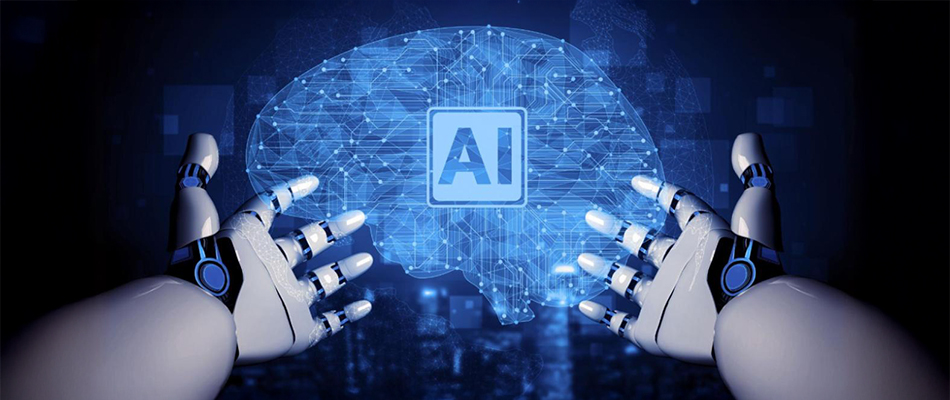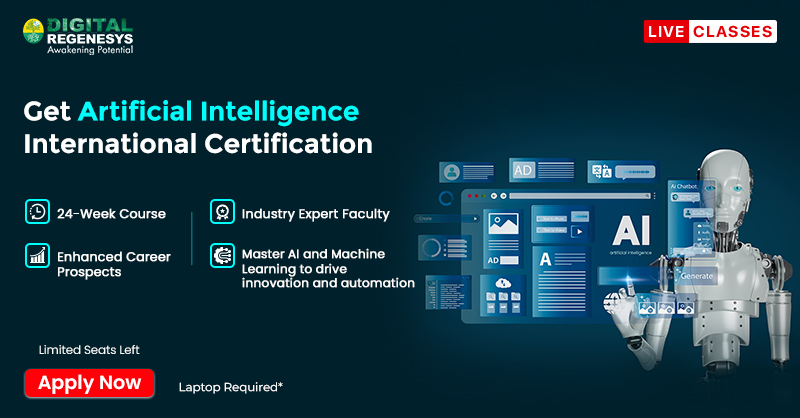Programming Foundations for Artificial Intelligence

Artificial Intelligence (AI) is redefining industries and shaping the way we interact with technology. Building intelligent systems that can learn, reason, and make decisions requires a solid foundation in programming.
Programming not only allows developers to instruct machines but also provides the logical framework necessary for implementing AI algorithms. Understanding these core programming principles is essential for anyone looking to pursue a career in AI or explore its applications.
In this article, we will explore programming foundations for AI, covering fundamental concepts, essential languages, mathematical principles, data handling techniques, and practical applications.
Whether you are a beginner or seeking to strengthen your AI skills, these foundations provide the stepping stones for creating robust and efficient AI solutions. Additionally, we will reference relevant courses that can help you gain hands-on experience in this domain.
What Are Core Programming Concepts for AI?
A strong understanding of basic programming concepts is critical for developing AI systems. These fundamentals allow developers to write efficient code and build scalable AI models.
Here are the key concepts you should know-
- Variables and Data Types– Variables store information, while data types such as integers, strings, and floats define the kind of data being processed. Proper handling of these ensures smooth data operations.
- Control Structures– Loops (for, while) and conditional statements (if, else) guide the program’s flow, enabling repetitive tasks and decision-making.
- Functions and Methods– Functions help in reusing code and maintaining modularity. This is essential when developing complex AI systems.
- Error Handling– Exception handling prevents programs from crashing, allowing AI applications to manage unexpected issues gracefully.
- Data Structures– Lists, dictionaries, sets, and arrays allow for efficient storage and manipulation of data, which is critical for AI computations.
Developing fluency in these programming concepts is crucial. For deeper learning, exploring a programming course for AI can provide practical exercises to reinforce these skills.
Explore details on What Is AI Marketing.

What Programming Languages Are Used in AI?
Choosing the right programming language directly impacts your AI project’s efficiency and capabilities. Each language comes with unique libraries and frameworks suited for specific tasks.
Here are the commonly used languages in AI-
- Python– Known for readability and simplicity, Python has extensive AI libraries like TensorFlow and PyTorch that make machine learning and deep learning easier.
- R– Excellent for statistical analysis and data visualisation, R is ideal for data-centric AI projects.
- Java– Offers scalability and cross-platform support, often used in large-scale AI applications.
- C++– High-performance language suitable for AI systems requiring fast, real-time processing.
- Julia– A newer language growing in popularity for numerical and scientific computing, often used in AI research.
Selecting the right language depends on project requirements, performance needs, and personal proficiency. For beginners, Python is often recommended due to its simplicity and broad adoption in AI courses.
Role of Mathematics and Algorithms in AI
Mathematics is the foundation of AI, providing the tools for model development, evaluation, and optimisation. Understanding these concepts allows AI developers to create precise and efficient algorithms.
Key mathematical areas for AI include-
- Linear Algebra– Essential for handling vectors, matrices, and operations that underpin machine learning algorithms.
- Calculus– Important for optimisation, particularly in training models via gradient descent.
- Probability and Statistics– Vital for predictions, risk analysis, and inference in AI systems.
- Discrete Mathematics– Includes logic, set theory, and graph theory, useful in AI reasoning and decision-making.
A strong grasp of these mathematical concepts ensures you can implement and understand AI algorithms effectively. To reinforce learning, taking a math and AI fundamentals course is highly recommended.
Learn more about How AI Differs from Traditional Computer Programmes.
Data Handling and Preprocessing
Data drives AI. Proper collection, cleaning, and preparation of data are crucial for building reliable AI models.
Key steps include-
- Data Collection– Gather high-quality, relevant datasets. Reliable sources improve model accuracy.
- Data Cleaning– Remove duplicates, inconsistencies, and errors to enhance dataset quality.
- Data Transformation– Convert raw data into structured formats suitable for analysis.
- Feature Engineering– Create meaningful features from raw data to improve model performance.
- Data Normalisation– Scale features to a uniform range to enhance algorithm efficiency.
Good data handling lays the groundwork for successful AI models. Hands-on practice through a data preprocessing course can help solidify these techniques.
How Does Object-Oriented Programming (OOP) Work in AI?
Object-Oriented Programming helps structure complex AI projects, promoting code reuse and modular design.
Important OOP concepts for AI include-
- Classes and Objects– Represent real-world entities in code, making programs more intuitive.
- Inheritance– Allows new classes to adopt properties of existing classes, reducing redundancy.
- Polymorphism– Enables a single interface to handle different data types, improving flexibility.
- Encapsulation– Protects data by restricting direct access to class members, enhancing reliability.
OOP provides a structured approach to developing AI projects, particularly when dealing with large-scale systems. Practical experience via an AI-focused programming course reinforces these concepts.
Know more about Neural Network Definition in Artificial Intelligence.
What are AI Libraries and Frameworks?
Libraries and frameworks simplify AI development by providing pre-built functions, algorithms, and tools.
Popular AI libraries include-
- TensorFlow– Supports neural network building, deep learning, and machine learning pipelines.
- PyTorch– Known for dynamic computation graphs and flexible model development.
- Scikit-learn– Offers simple tools for data mining, machine learning, and predictive modelling.
- Keras– High-level API for building and training deep learning models efficiently.
Utilising these libraries accelerates development and reduces the process of implementing AI models from scratch. Enrolling in a practical AI course helps in gaining hands-on experience with these tools.
Practical AI Project Examples
Applying programming foundations in real-world projects is critical for skill development.
Examples include-
- Predictive Analytics– Forecasting sales trends using machine learning algorithms.
- Image Recognition– Using neural networks for object detection and classification.
- Chatbots– Implementing natural language processing for customer service.
- Recommendation Systems– Building systems that suggest products or content based on user behaviour.
Practical projects consolidate learning and build a portfolio that demonstrates your AI skills. A project-based AI course provides guided exercises to build such applications.
Conclusion
Developing a solid foundation in programming is essential for anyone pursuing AI. Understanding core concepts, programming languages, mathematics, data handling, OOP principles, and AI libraries equips learners to build intelligent systems confidently.
Enrolling in the Digital Regnesys Artificial Intelligence Certificate Course provides practical experience, reinforcing these concepts and helping learners bridge the gap between theory and real-world applications.
To strengthen your programming foundations for AI and gain practical experience, visit Digital Regenesys.
Last Updated: 1 October 2025
